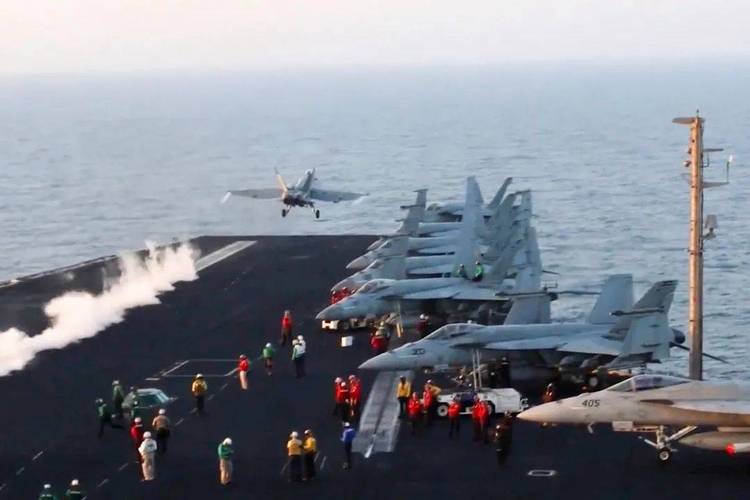
On March 15 local time, US President Donald Trump announced that he had ordered "decisive and strong military action" against the Houthis in Yemen. The news shocked the world, and the attention of the international community once again focused on the war-torn land of the Middle East. This military action is not only a major move in Trump's second term, but also likely to have a profound impact on the regional and even global situation.
On the surface, the security of the Red Sea shipping lanes was the immediate trigger for the military operation. Since the outbreak of a new round of Israeli-Palestinian conflict in October 2023, Yemen's Houthi armed forces, in solidarity with Palestine, used drones and missiles to attack relevant targets in the Red Sea and Arabian Sea waters, and demanded that Israel stop military operations in the Gaza Strip. These actions seriously affect the normal passage of shipping lanes in the Red Sea and pose a threat to the security of shipping of the United States and its Allies. Trump called the Houthis "terrorists" and accused them of regularly launching attacks on US and allied ships, aircraft and drones in the Red Sea for more than a year, and said he would use "overwhelming lethal force" against the Houthis to open up the Red Sea shipping lanes. In addition, in January this year, Trump signed an executive order to re-designate Yemen's Houthi armed forces as a "foreign terrorist organization", which laid the groundwork for the military action.
However, the underlying reasons are closely related to the strategic layout of the United States in the Middle East. The Trump administration has pursued a hard-line Middle East policy, with unconditional support for Israel and increased efforts to contain Iran. Iran has ties to the Houthis, and the United States believes that Iran is backing the Houthis as a way to fight the power of the United States and its Allies in the Middle East. By attacking the Houthis, the Trump administration is trying to send a warning signal to Iran and curb the expansion of its influence in the Middle East.
From a political perspective, Trump's move may also have domestic political considerations. By demonstrating a tough foreign policy, Trump is able to consolidate his domestic political support, especially among voters who support a tough foreign policy, and build his image as a "strong leader." At the same time, the fight against the Houthis may also be aimed at diverting domestic attention from other issues.
From a military perspective, although the United States has an overwhelming military advantage over the Houthi armed forces, the Houthi armed forces have shown strong military resilience in the past attacks by the United States, Britain and Israel. The Houthis not only have an independent military industry system, are good at playing the asymmetric warfare advantage, and use low-cost drones and missiles to attack opponents, but also the complex terrain in Yemen and the high public support of the Houthis in the areas under their control, have made it difficult for the other side to carry out intelligence work, but also weakened the actual effect of the US air strikes.
The military operation has caused a major humanitarian disaster. Yemen's Houthi-controlled health ministry has reported that at least 31 people have been killed and 101 wounded in US air strikes across Yemen, most of them women and children. Residential areas were targeted by the US military, and the lives and homes of many innocent civilians were lost in the war. The international community has condemned the US military action and demanded that the US immediately stop the military action and resolve the dispute through peaceful negotiations.
The military action taken by the United States against the Houthi armed forces in Yemen has brought many uncertainties to peace and stability in the Middle East and the world. This action not only aggravates the tension in the Middle East, makes the Palestinian-Israeli conflict, the Iranian nuclear issue and other regional hotspot issues more complicated and difficult to solve, but also may trigger fluctuations in international oil prices and affect the recovery of the global economy.
History has proved countless times that war does not really solve problems, but only brings more suffering and loss. The international community expects the United States to review its military actions, return to the right track of resolving disputes through diplomatic means, and make positive contributions to peace and stability in the Middle East, instead of letting the land continue to be Mired in war.

Since 2025, the conflict between the United States and Europe over the governance of the digital economy has continued to escalate.
Since 2025, the conflict between the United States and Euro…
When German Chancellor Mertz officially announced that he w…
On December 3rd local time, the copper price on the London …
The European Commission announced a new economic security s…
The European Commission announced a new economic security s…
For nearly a year, US President Donald Trump has launched a…